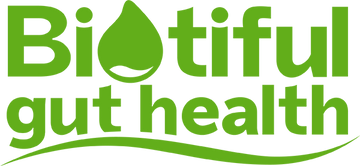If your aim is to build muscle, there’s a strong chance that you’ll be following a high-protein diet. But is all protein good for muscle growth? Should we avoid certain proteins? And what about natural protein sources vs supplements? We’re going to delve into why protein is important for gaining muscle and recovery, and the benefits of getting your intake from natural protein sources.
The Best Natural Protein Sources For Muscle Gain
Biotiful Kefir
Firstly, how could we not mention Biotiful Kefir? Our Biotiful Kefir Yogurts and Kefir Drinks are fantastic sources of natural protein. If you’re looking for a gut-friendly way to build muscle, Biotiful Kefir offers exactly that. But what is kefir? It’s a fermented milk product, and the process of fermentation results in it containing millions of healthy bacteria that our gut loves. Use Biotiful Original Kefir wherever you'd usually have yogurt, or try our range of flavoured Kefir yogurts and drinks with no added sugar.
Find out where to buy Biotiful Kefir, stocked in supermarkets all across the UK, as a simple gut-healthy swap that you'll stick to. Our range includes creamy Kefir drinks, which contain around 8.8g of protein per 250ml serving, and tasty Biotiful Kefir yogurts, which contain around 6g of protein per 100g. Learn more about why Kefir is good for your gut health.
Red Meat
Lean cuts of red meat are a great natural protein source if you are looking to gain muscle; a sirloin steak can contain around 50 grams of protein. Try to avoid red meats that are processed, which include bacon, sausage and ham. While these can still be considered natural sources, they will likely be more processed than options such as beef, pork and lamb.
Poultry
You’ll often find those concerned with muscle gain who aren’t following a meat-free diet will have high amounts of chicken and turkey in their diet. A chicken breast contains approximately 32g of protein per 100g, while a turkey breast contains around 30g of protein per 100g. In general, poultry contains less fat than red meat options, too, which can help to support gut health and weight loss, too.
Beans
If following a meat-free or vegan diet when trying to build muscle, the bean family will be a big help. It can seem hard to find natural sources of protein that are vegan, but black beans, kidney beans and chickpeas tick all the boxes. A cup of any of these will contain around 15g of protein, and they can be combined with other foods to form delicious dishes like chilli, burrito bowls and curries.
Fish
Fish is a great source of protein. And given the variety of options, you should be able to find a way to make it work for your diet as well as your taste buds. This could be smoked salmon for breakfast, tuna as part of a lunchtime salad, or haddock forming the base of your evening meal.
Eggs
If you’re looking for a natural source of protein to start your day, introducing eggs into your breakfast can be a great way to do so. Aside from being high in protein, eggs are also extremely versatile, which allows them to be used in a range of breakfast dishes including omelettes, wraps and scrambled egg dishes.
The Role Of Protein
Protein plays an important role in our bodies. It’s a great source of energy, supports the immune system and plays an important role in many of the bodily functions that we take for granted. But what protein is best known for is its role in muscle growth and repair.
Protein plays a vital role in the muscle gain process by repairing damaged muscles. This may sound like you only need protein when you’re injured, but this is far from the case. As we exercise, we create microscopic tears in our muscles. If you’ve ever felt soreness the day after lifting weights, there’s a strong chance that this is being caused by tiny tears in your muscles.
These tears need to be repaired in order to prevent injury and to help with muscle growth, and that’s where protein comes into play. In repairing damaged muscle fibres, protein helps to stimulate muscle growth in a process called muscle hypertrophy. As a result, those who are focusing on muscle growth often follow a diet which is high in protein.
In terms of aging, protein does play a key role in preventing age-related muscle loss, yet the most important way to maintain muscle is through strength training. When this is then supported by a diet high in natural protein sources, we are well equipped to remain strong and healthy as we age.
The Benefits Of Natural Protein Sources
The popularity of high-protein diets as a result of higher intensity training has led to more interest in protein sources. While advancements in the food industry have provided us with a range of options when it comes to protein, it’s generally believed that natural protein sources are best.
Gut Healthy
Natural sources of protein come with additional benefits beyond being high in protein, one of which is being better for your gut. While protein powders and supplements will help with the muscle building process, they can often be higher in sugar and lower in fibre, which means they’re not as gut-friendly as natural protein sources.
Dairy-based protein sources that contain probiotics, like our Biotiful Kefir yogurts and drinks, also support your gut microbiome, which in turn can also result in improved digestion, sleep, improved mood, immunity support and healthier skin.
Micronutrient And Fibre Rich
Natural sources of protein are a more complete package and are rich with other nutrients and benefits. For example, fish, which are high in protein as well as omega 3 fatty acids, support a range of key bodily functions, including heart health, brain function, and the immune system.
Eggs are another natural protein source rich in nutrients, containing all nine essential amino acids that the body can’t produce on its own, as well as containing many different minerals and vitamins.
Plant based protein sources like beans, legumes, peas, nuts and seeds are also high in protein, along with being an excellent source of fibre. This also supports your gut health, and therefore overall health and wellbeing.
Keeps You Fuller For Longer
While protein is often associated with those looking to build muscle, it also has benefits for those looking to lose weight. That’s because natural protein sources leave you fuller for longer, which can prevent you from snacking and overeating.
Final Thoughts On Natural Protein Sources
Natural protein sources not only have the benefit of helping with muscle growth and recovery, but they have the benefits of being more gut healthy, micronutrient and fibre rich, as well as helping to keep you fuller for longer. Biotiful Kefir is a fantastic source of natural protein, so find out where to buy Biotiful Kefir and begin your Gut Health Reset!




